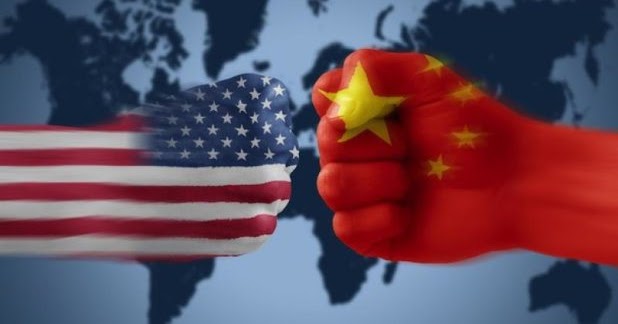Who will push Biden to flirt with Australia, India and Japan

What Biden's appointments indicate on US foreign policy with Asia. The in-depth analysis by Lorenzo Mariani published in Affari Internazionali
Although Joe Biden's future strategy in Asia is not yet known, the long list of experts recruited so far by the new president helps us to understand which ideas will contribute to the shaping of US foreign policy in the region and in particular in its relations with China . "Personnel is policy".
Among the main figures stands that of Kurt Campbell, who has been assigned the direction of the Indo-Pacific business desk of the National Security Council. Campbell is a supporter of managed decoupling between the US and China; from his point of view, Washington must rediscover its role as a stabilizing power in the region, adopting a grand strategy that envisages maintaining current political equilibrium and involving its partners in ad hoc alliances to counter Beijing's interference. Not an anti-Chinese coalition, Campbell explains in an article in Foreign Affairs , but rather a series of multilateral fora in which to coordinate with one's allies, not just regional ones.
On similar positions also two other members of the Indo-Pacific desk: Rush Doshi, author of the book “The Long Game: China's Grand Strategy to Displace American Order” with a rather explanatory title; and Julian Gerwitz, more moderate, according to which in order to have a less Sino-centric Indo-Pacific, Washington must abandon the pretense of requiring its allies to take a clear position and at the same time avoid at all costs a Cold War-style confrontation with the China.
The experience of Sumona Guha will also help the relaunch of alliances with key countries such as India and Southeast Asia, who has been appointed director of South Asian affairs within the Indo-Pacific desk. Guha is a realist, she sees a military convergence between New Delhi and Washington rather unlikely – especially in an anti-Chinese function – but she recognizes the strategic importance of this partnership to guarantee US interests in the Pacific.
A TEAM FOR CHINA
Another well-known name that will join Campbell is that of Laura Rosenberg, who has distinguished herself over the last year for her strong criticism against China, accusing Beijing of having exploited the pandemic to repress internal dissidence and of having tried to undermine relations between the European Union and the United States through its health aid policy and targeted disinformation campaigns.
According to his statements, among the priorities are the contrast to the technological supremacy of China and the creation of a multilateral deterrence system against interference by authoritarian countries such as China and Russia, especially in the digital sphere. The fear of a possible strategic convergence between Moscow and Beijing in contrast to Western democracies seems to be quite widespread among US analysts. It is no coincidence, therefore, that in the composition of the new National Security Council the section dedicated to Russia has been integrated, for the first time, within the Indo-Pacific desk.
An influential figure in the future development of relations with Beijing will be Ely Ratner, special assistant to the new Defense Secretary Lloyd Austin and former advisor to Biden between 2015 and 2017. He has been entrusted with the leadership of the "Task Force China" in charge of reviewing the National Security Strategy of 2018, in which the Trump administration stressed the need to prepare for a conflict with Russia and China. His task and that of the task force will be to integrate it with additional tools useful to "discourage China in the Indo-Pacific region".
Also on Beijing there is Jake Sullivan, appointed National Security Advisor to the President's executive office, also a supporter of a policy of strengthening alliances, especially with the members of the Quad (Australia, India and Japan), and of the military presence. in the region. Sullivan is known for his clear-cut line towards the Taiwanese cause and has often remarked on Washington's need to respond more forcefully to Beijing's pressure in the Strait.
CHANGE THE LINE IN KOREA
There is no shortage of experts on North Korea. Jung Pak, appointed deputy undersecretary of state, is well known for the critical positions regarding the strategic choices of the previous administration. While professing the need for greater coordination with Seoul, Park embraces a line in stark contrast to that promoted up to now by South Korean President Moon Jae-in.
For her, economic pressure on the country remains the main means by which to obtain a return to negotiations on the nuclear program, possibly in the form of multilateral consultations of five. Nonetheless, this does not preclude the choice of a third way. During the election campaign, Vice-President Kamala Harris said she was in favor of a rethinking of the "maximum pressure" policy towards Pyongyang.
On the Korean question, Biden can also avail himself of two valid political advisers: Wendy Sherman, appointed Deputy Secretary of State, who under the Clinton presidency worked as coordinator of the negotiations that led to the signing of the framework agreement with North Korea in 1994; and Sung Kim, former special envoy to Pyongyang between 2008 and 2011 and negotiator on behalf of Trump for the realization of the first US-North Korea summit.
This is a machine translation from Italian language of a post published on Start Magazine at the URL https://www.startmag.it/mondo/joe-biden-politica-estera-australia-india-giappone/ on Sun, 07 Mar 2021 07:00:30 +0000.
